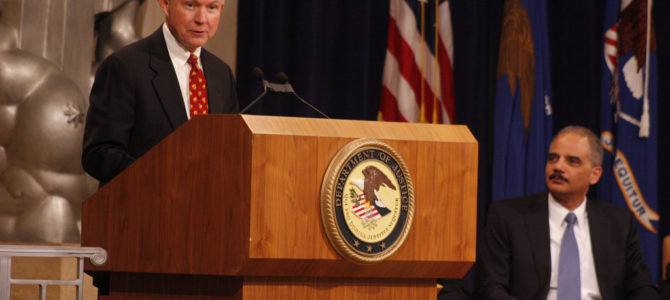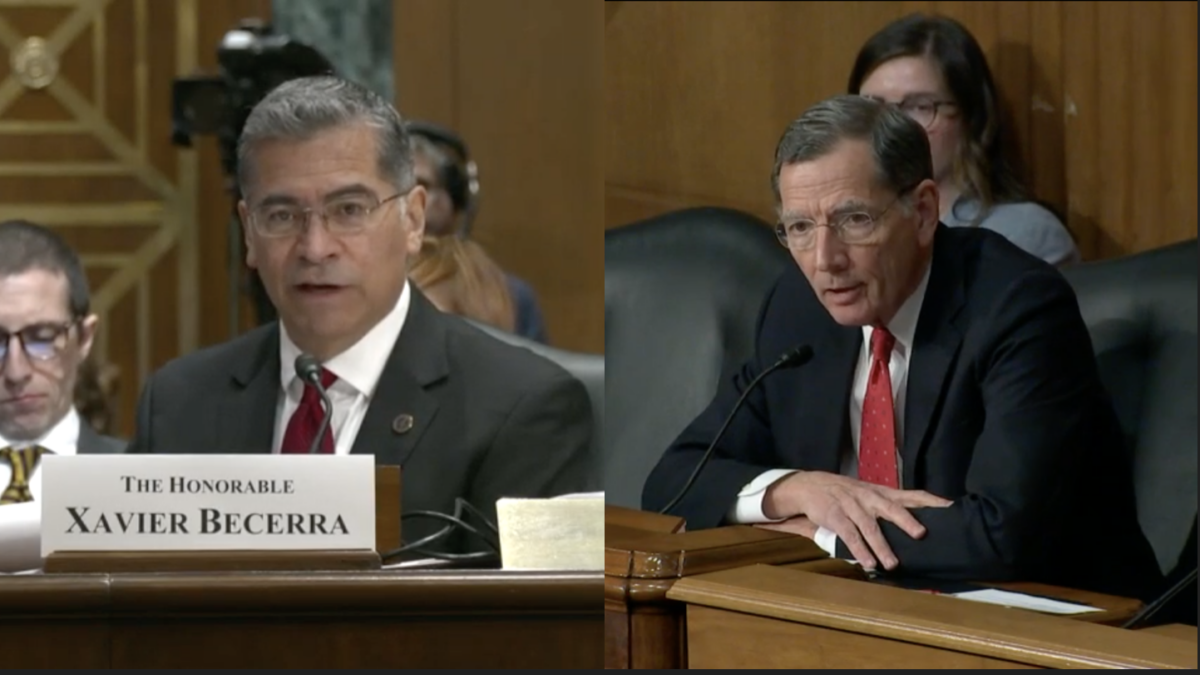
Invoking God and religion to support immigration points is wrong because we are not a religious nation. This is not to say that our Founders weren’t steeped in Christian ideas, or that our government is not built on Judeo-Christian principles.
Our Declaration of Independence is evidence of both. We are endowed by “our Creator” with inalienable rights; we are entitled to sovereignty by the “Laws of Nature and Nature’s God;” we appeal to “the Supreme Judge of the World” in declaring independence; and we ask for the protection of “Divine Providence” in pledging it. Many Americans are religious, and we often understand the events of our world in religious terms.
The Constitution, on the other hand, which is the basis for how our government operates, is an entirely secular document. The only specific mention of God is found in the date the Constitution was written: “in the Year of our Lord 1787.” At the beginning of the Constitutional Convention, Benjamin Franklin called for prayer not because they were drafting a religious document, but because they were a religious people.
This is an important distinction. While the Founders intended the Constitution to make us a nation of religious tolerance rather than one that established a state church, as was the case with many countries they had left, they wrote it as the tool of a religious people. Their religious understanding of human nature can be seen in its secular principles. For example, because they knew man was sinful and had a drive for power, they designed a tri-partite system of government with checks and balances.
U.S. Government May Not Decide Religious Questions
As a non-theocratic document, the Constitution expressly forbids religious tests for office and omits legislation on religious matters, which are the purview of state and local governments. The separation of church and state as we understand it today was not a salient feature at the time and does not appear in the Constitution.
The Founders never had any intention of removing religion from the public square, however. Ironically, as opposed to our day, they were more concerned with government’s influence on religion than religion’s influence on government. To address their concerns, they added the First Amendment: “Congress shall make no law respecting an establishment of religion, or prohibiting the free exercise thereof.”
Today the separation of church and state is one of our bedrock principles and is used as a sort of shorthand for the secular nature of both the Constitution and the nation itself. Because Congress derives its power to enact laws from the Constitution, whenever any of us uses religion to argue points about government laws, we’ve crossed that line.
The beauty of the line is that it keeps arguments concrete and rational, which renders them more persuasive and makes civil discourse more likely. This is especially important with controversial immigration laws. People often cite scripture as an appeal to authority rather than doing the work to make the public-square arguments that public policy requires.
But the United States is not a theocracy. Our civil work is not religious work. We should be making civic arguments about civic matters and religious arguments about religious matters. Although charity is often religiously motivated, immigration policy is not a religious matter. It is a civil matter.
Immigration Is Not a Religious Question
Yet we see people on both sides of the issue constantly making appeals to religious authority to browbeat people into agreeing with them rather than fairly persuade Americans using the appropriate grounds for a civil matter. This happens on both Right and Left.
For example, more than a dozen faith leaders recently joined together in a public statement decrying the separation of families at the border: “We affirm the family as a foundational societal structure to support human community and understand the household as an estate blessed by God.”
As a statement to their congregations, this would be entirely appropriate as a private, non-governmental communication. The statement, however, was sent to the Trump administration by the Episcopalian Office of Government Relations.
Its reference to God also obscures the statement’s more persuasive point, which the faith leaders are in a position to make and is secular: “The security of the family provides critical mental, physical and emotional support to the development and wellbeing of children.” This rational argument that separating families negatively affects children is the appropriate way to influence official government policy.
Appealing to Authority Alone Is Not a Legitimate Argument
Attorney General Jeff Sessions recently invoked the Bible to justify the separation of families at the border: “I would cite you to the Apostle Paul and his clear and wise command in Romans 13, to obey the laws of the government because God has ordained them for the purpose of order. Orderly and lawful processes are good in themselves and protect the weak and lawful.”
Sessions also said, “I have given the idea of immigration much thought and have considered the arguments of our church leaders. I do not believe scripture or church history or reason condemns a secular nation state for having reasonable immigration laws.”
Sessions is wrong to cite scripture and speak in religious terms because he is a public official in our secular nation. White House Press Secretary Sarah Sanders echoed the problem when she said in a press briefing that “it is very biblical to enforce the law.”
Nowhere in the codes of federal and various state regulations will you find a verse of scripture or an explicit reference to a biblical principle. We do not want government making law based on theology, because Americans have widely divergent views about religion and laws derived from theology impose one theological interpretation on everyone. This is the place of religion, not government.
If Sessions had been making the speech to a private audience of church leaders, his comments would have been appropriate. The speech he made, however, was to the Fort Wayne Rotary Club, the Fort Wayne Business Forum, and the Allan County Bar Association. His reference to scripture overshadowed his much more powerful and rational arguments in favor of the “zero tolerance” policy, which:
- gives us a historic opportunity to finally fix an immigration system that has been broken for decades;
- serves our national interest in a lawful way;
- combats elitist prioritization of corporate interests and those of activist groups over what is best for the American people;
- corrects a lax immigration policy practiced during the Obama administration that allowed into the US many asylum seekers who never returned for their asylum hearing;
- squelches the rumor that asserting a fear of returning to one’s home country allows migrants to remain in the United States;
- reverses the Obama administration’s de facto open borders policy whereby they would not prosecute illegal aliens who entered the country with children;
- protects thousands of vulnerable children whose parents will be discouraged from bringing them on a dangerous and often deadly trek to our border; and
- restores the legality of the immigration system and undoes the damage that was done under the Obama years.
These objective arguments are the appropriate way to express official government policy. Each is powerful on its own merits. If Sessions had stopped there, he would have maintained credibility in his role as attorney general. To cite scripture and argue on religious grounds in support of a government policy, however, weakens his position considerably when it is not merely rhetorical flourish but used as the basis of his arguments.
No public figures should express or attempt to influence government laws or policy with religious rhetoric, because we are not a nation with a state church. Those who ground their personal immigration arguments with statements about God, or references to scripture, are equally out of bounds. Let the arguments stand or fall on reason and logic, in keeping with our nation’s decision not to establish a state church, which turns civil discourse into religious wars. Immigration policy is hard enough without bringing theological disputes into the mix.









